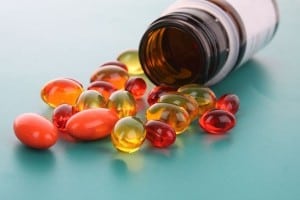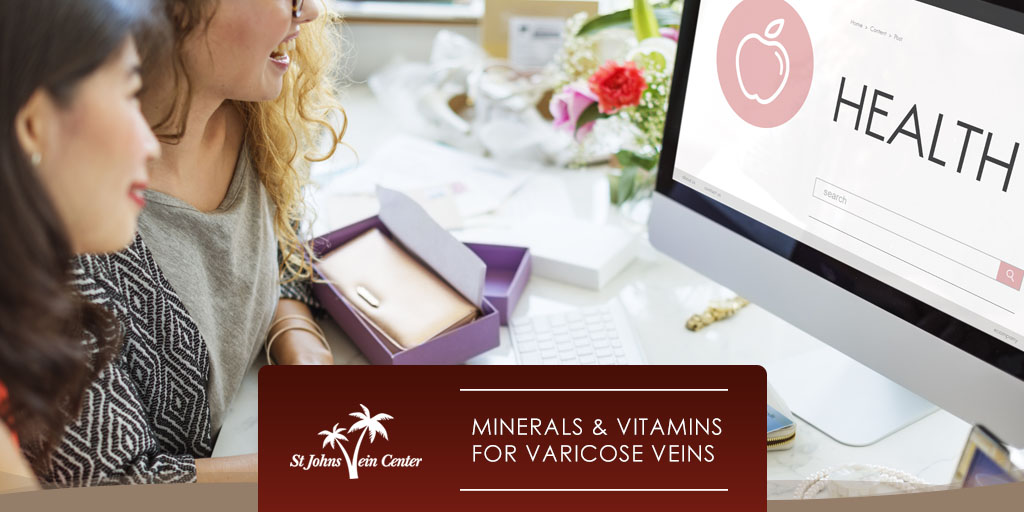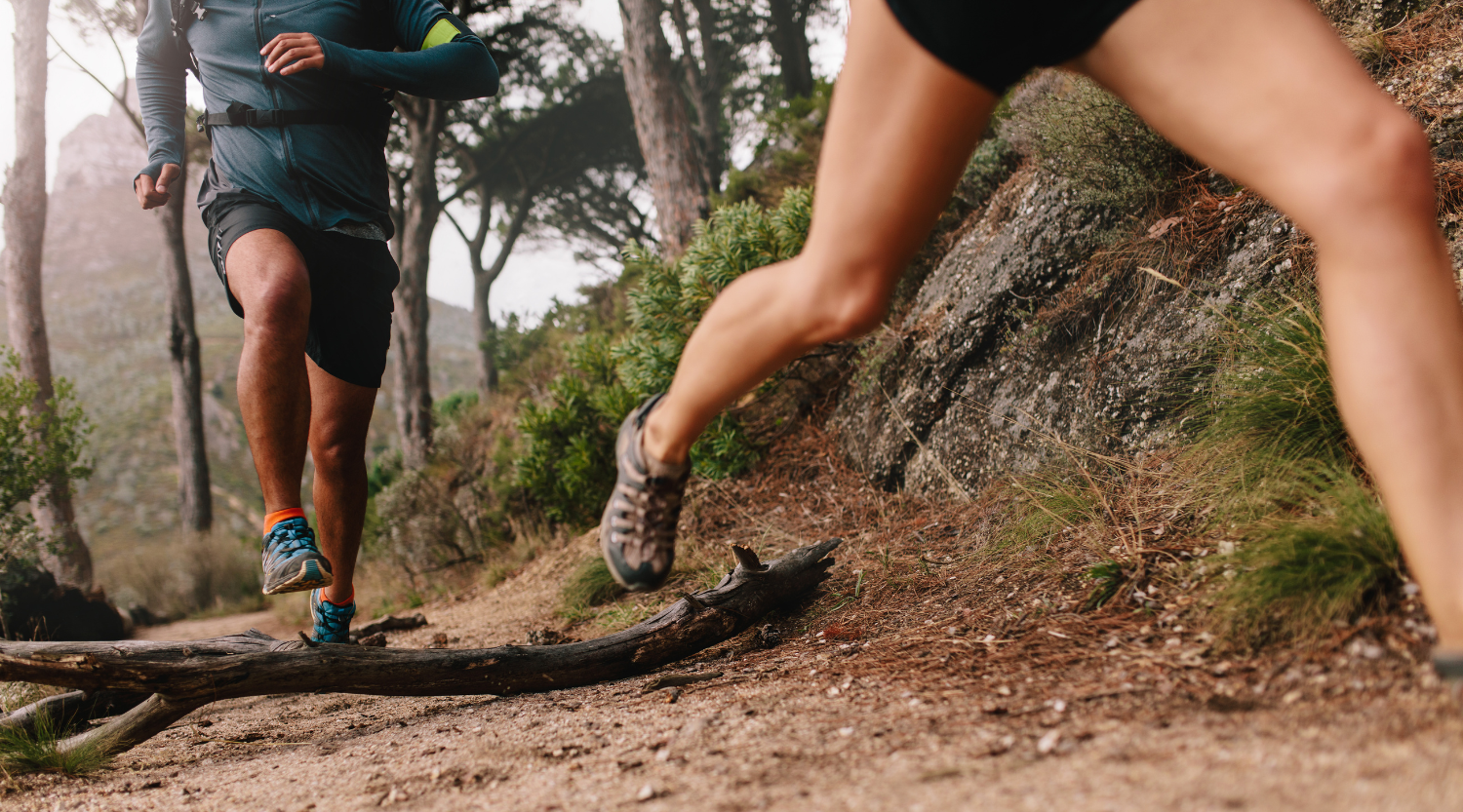 As with most any medical condition, nutrition can assist your body in healing or even avoiding serious health conditions such as varicose veins. “A basic healthy diet, plus certain vitamin and mineral supplements can help strengthen the walls of your veins,” says Dr. James St. George. The team at St Johns Vein Center share the minerals & vitamins to look for including in your healthy lifestyle.
As with most any medical condition, nutrition can assist your body in healing or even avoiding serious health conditions such as varicose veins. “A basic healthy diet, plus certain vitamin and mineral supplements can help strengthen the walls of your veins,” says Dr. James St. George. The team at St Johns Vein Center share the minerals & vitamins to look for including in your healthy lifestyle.
Varicose and spider veins form when weak or damaged blood vein valves fail, causing blood that should be pumping upwards to the heart to fall backwards into the lower leg. Blood pools inside the veins, causing them to stretch, bulge and show through the skin’s surface.
Minerals & Vitamins
To help strengthen your vein walls and keep blood pumping effectively, adopt a healthy diet rich in vitamins C, E, B6 and B12, plus copper, fiber and bioflavonoids.
- Vitamin C: While this common vitamin is most commonly known for helping to fight the common cold, it also helps the body manufacture connective tissues collagen and elastin, both of which the body uses to repair and maintain veins, keeping them strong and flexible.
- Vitamin E: This vitamin, found in many of your favorite foods, prevent blood clots by keeping platelets from sticking together and adhering to the sides of blood vessel walls.
- Vitamins B6 and B12: Both of these vitamins also help clear the blood of homocysteine, which has been linked to recurring blood clots.
- Copper: This trace mineral found in shellfish, lean red meat, whole grains, nuts and seeds, is essential in building and repairing endothelial cells, the smooth protective cells that line the insides of blood vessels. It’s used in the body to knit together collagen and elastin and appears to help protect blood vessels against microscopic tears and rough spots that can lead to blood clots and plaque-filled veins.
- Bioflavonoids: Bioflavonoids are found in deep-colored berries like blueberries, blackberries and cherries and may help keep capillaries from breaking down and forming spider veins.
- Fiber: A fiber-rich diet will help you avoid constipation, which can create pressure in your abdomen and block the flow of blood back to your legs, weakening vein walls over time.
- Sodium: Cutting out salt helps, too. Too much salt will cause your legs to swell, placing added stress on your veins.




